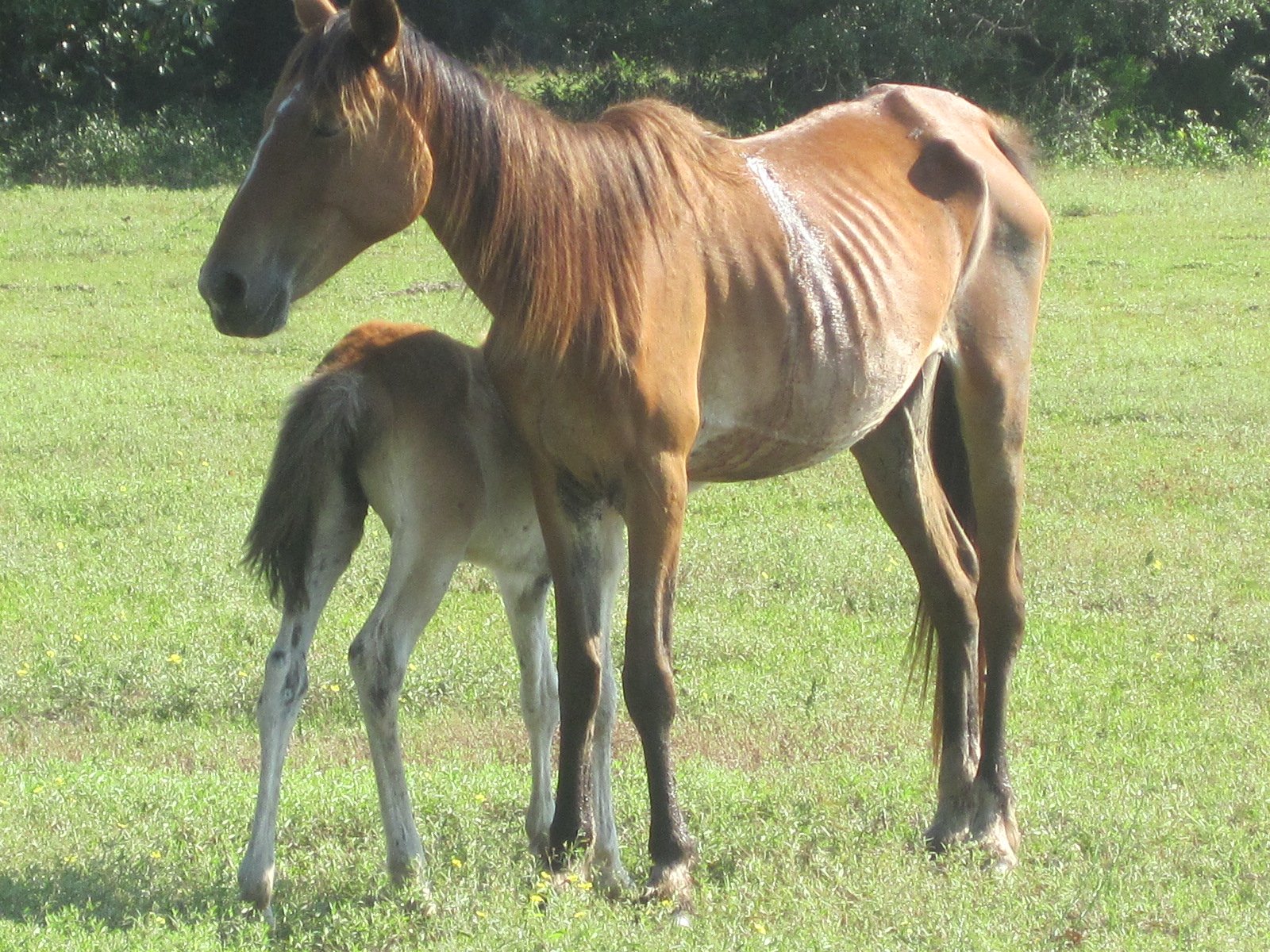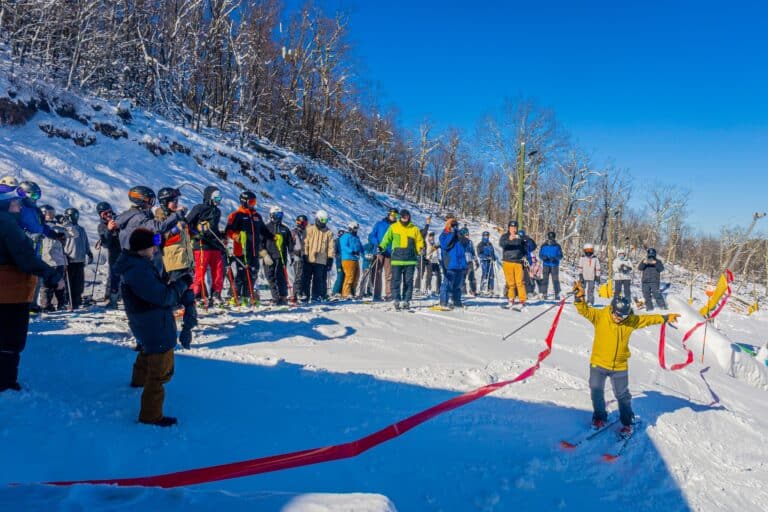Horses are animals deeply entwined with human history, and they have earned a prominent spot in our hearts. One aspect of this human-horse relationship is our tendency to project onto these beloved creatures our love for freedom, picturing them living an idyllic life “running free.” This image comes with an assumption that horses “set free” will adapt to their new conditions, thrive, and be happy. We assume they will have a better life. But few of us see the actual hardships in the life of a feral horse in unfamiliar terrain.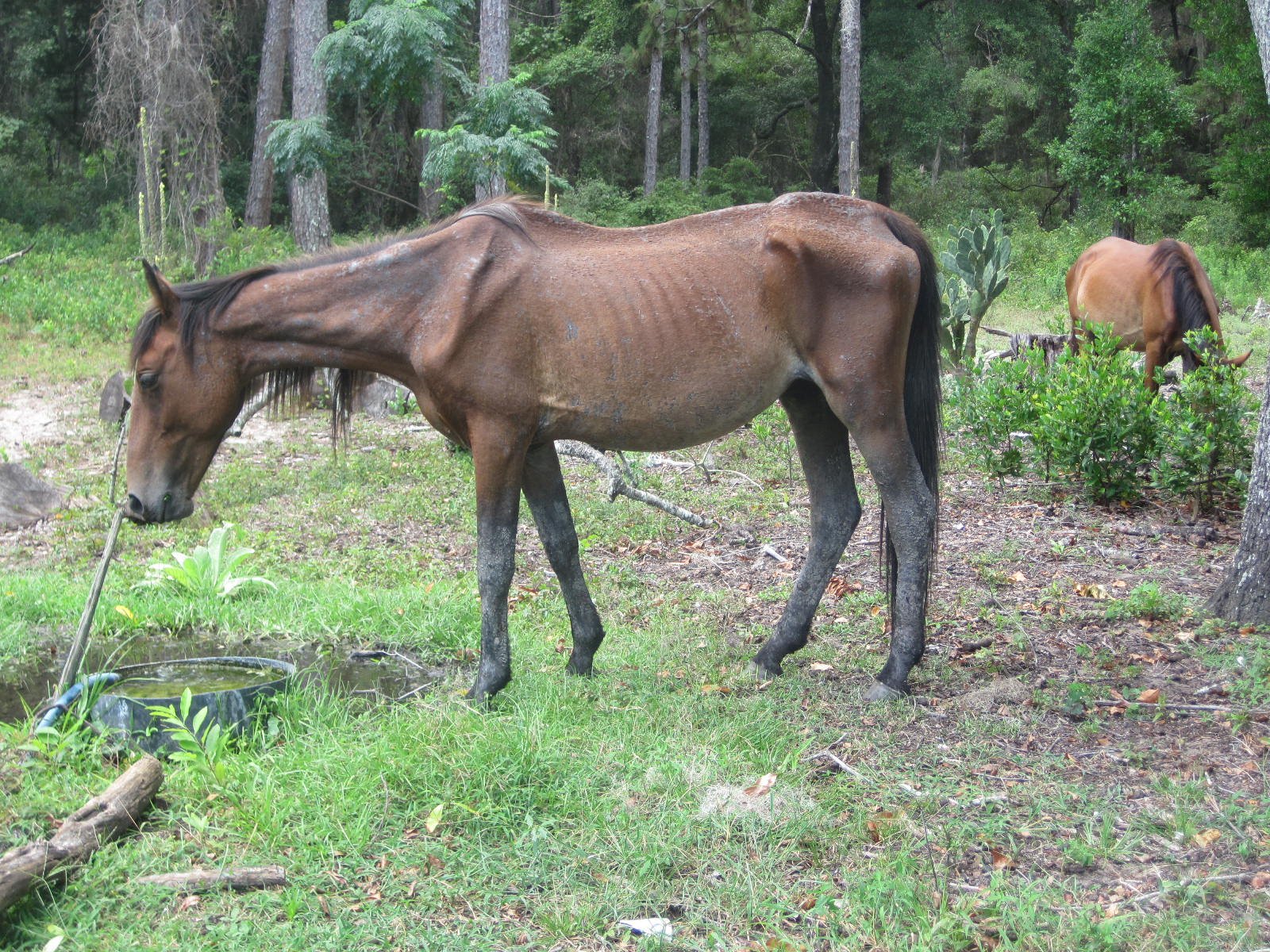 Modern horses are grassland animals. They’re not built to thrive on islands. As a result, their carcasses are piling up in greater numbers on Cumberland Island, a national seashore along the Georgia coast.
Modern horses are grassland animals. They’re not built to thrive on islands. As a result, their carcasses are piling up in greater numbers on Cumberland Island, a national seashore along the Georgia coast.
Visitors imagine that the animals are enjoying happier lives living free on a forested island, but most island visitors see only a glimpse of the life of island horses. They do not observe the struggles of equine life in this hostile island environment, nor the outcomes, since the National Park Service quickly removes dead or injured animals from sight. Turning loose the horses on Cumberland is similar to turning one’s pet dog loose in a forest and expecting it to fare well.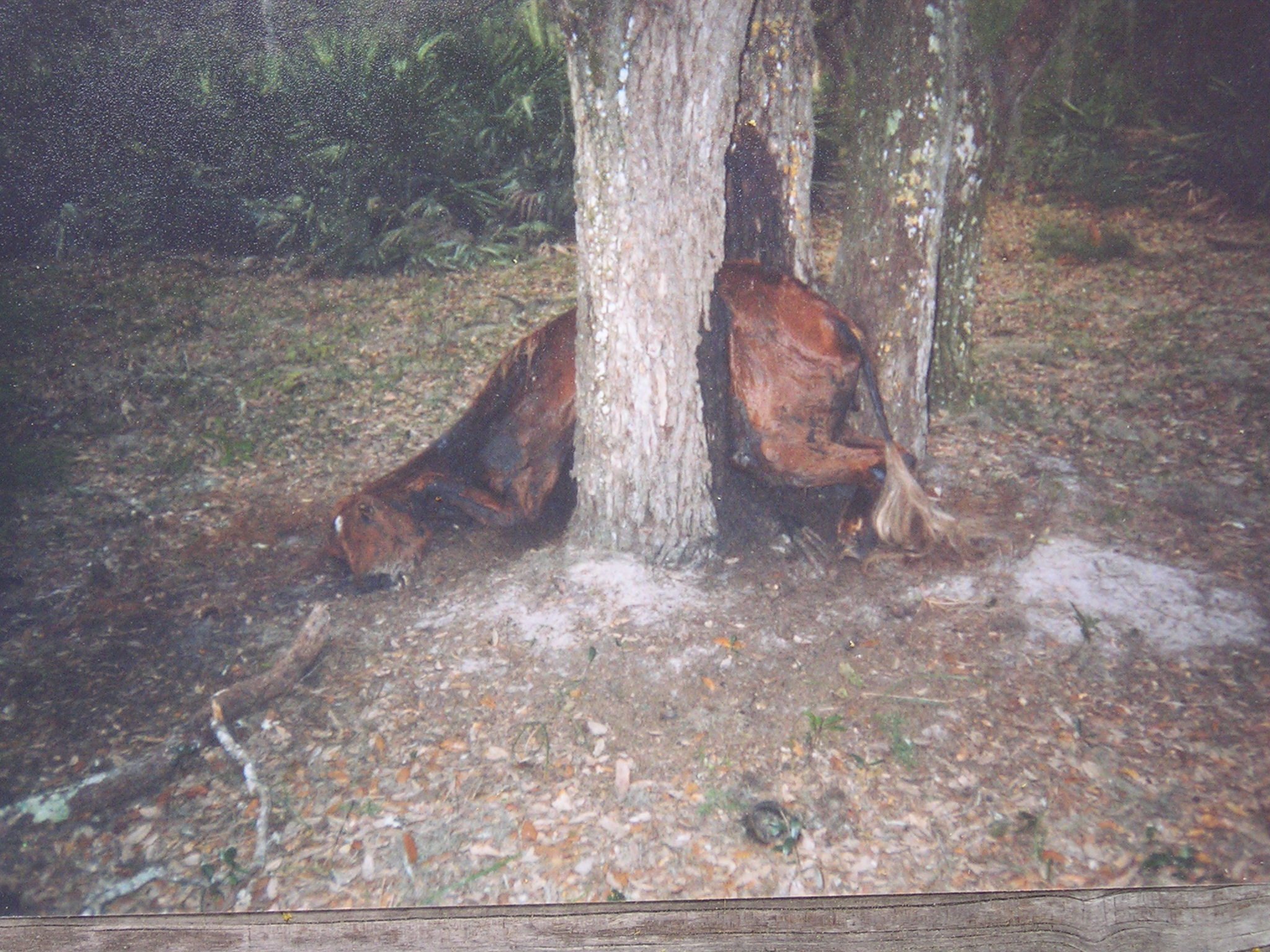 On Cumberland, feral mares are often impregnated at age one, long before they are fully mature. Their health quickly deteriorates, especially when food supplies are sparse, which they frequently are on barrier islands.
On Cumberland, feral mares are often impregnated at age one, long before they are fully mature. Their health quickly deteriorates, especially when food supplies are sparse, which they frequently are on barrier islands.
In addition, foal mortality is high, and environmental hazards are many. Flowing manes and long-haired tails are potentially deadly in vine-tangled forests, where the horses are often snared and held until death. The open, level expanses of salt marsh are inviting to equines, but the weight of a horse is distributed on four small points, which offer little support in soft mud. Once a horse sinks belly-deep in mud, escape is unlikely, but the tide is inevitable. Many have drowned, held fast by the mud.
Turning loose the horses on Cumberland is similar to turning loose one’s pet dog in the forest and expecting it to fare well.
And there are predators. Island horses are killed by alligators, as well as venomous snakes, and encephalitis-bearing mosquitoes. In reality, life is hard and survival is a challenge for the horses living on Cumberland Island.
Not only are the horses living a hard life, but many animals native to Cumberland suffer from the presence of feral livestock, as do the natural island ecosystems. Much of the island horse’s diet is composed of Spanish moss, which would otherwise hang to the ground, providing food and habitat for native animals. One look at the amount of horse manure on the island gives an idea of the enormity of their impact on the vegetation and water quality, and thus the ecosystems.
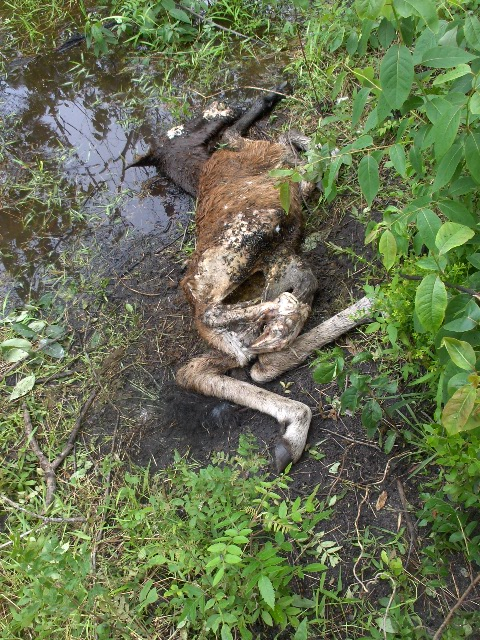
Preferring open areas to hazardous forest habitat, and always in search of food, horses frequent the beach and dunes to forage and escape biting flies. There they graze and trample grasses necessary to stabilize the dunes, such as sea oats. Sea oats help hold the sand dunes in place, with their deep network of roots and ability to continue growing if buried. Grazing compromises this natural protection of the shoreline and also violates state law.
It is time for us to thoughtfully address the presence of feral horses on Cumberland Island, taking into account their welfare and that of the island ecosystems. Local businesses see the horses as attracting tourist dollars. Others still have an emotional attachment to having horses on the island, without understanding the situation. Are we guilty of simply projecting our romantic notions onto suffering animals?
Recently, the National Park Service expressed an interest in non-lethally eliminating feral horses on the island. Using contraception, it is both possible and feasible through non-lethal methods, to allow the present horses to live out their lives on the island, without reproduction, thereby preventing future suffering and ecosystem degradation. In the long-term, using contraception to reduce the number of horses on Cumberland is what’s best for the horses and the island.
The National Park Service is seeking comments as part of their upcoming Visitor use Management Plan. Now is an important time to share your thoughts. Ideally, the feral horses should be completely removed, for the health of the suffering horses and the island. At the very least, the National Park Service needs to reduce the number of horses to a small herd on the south end of the island. Submit your comments—even just a sentence or two—at https://parkplanning.nps.gov/CUIS
